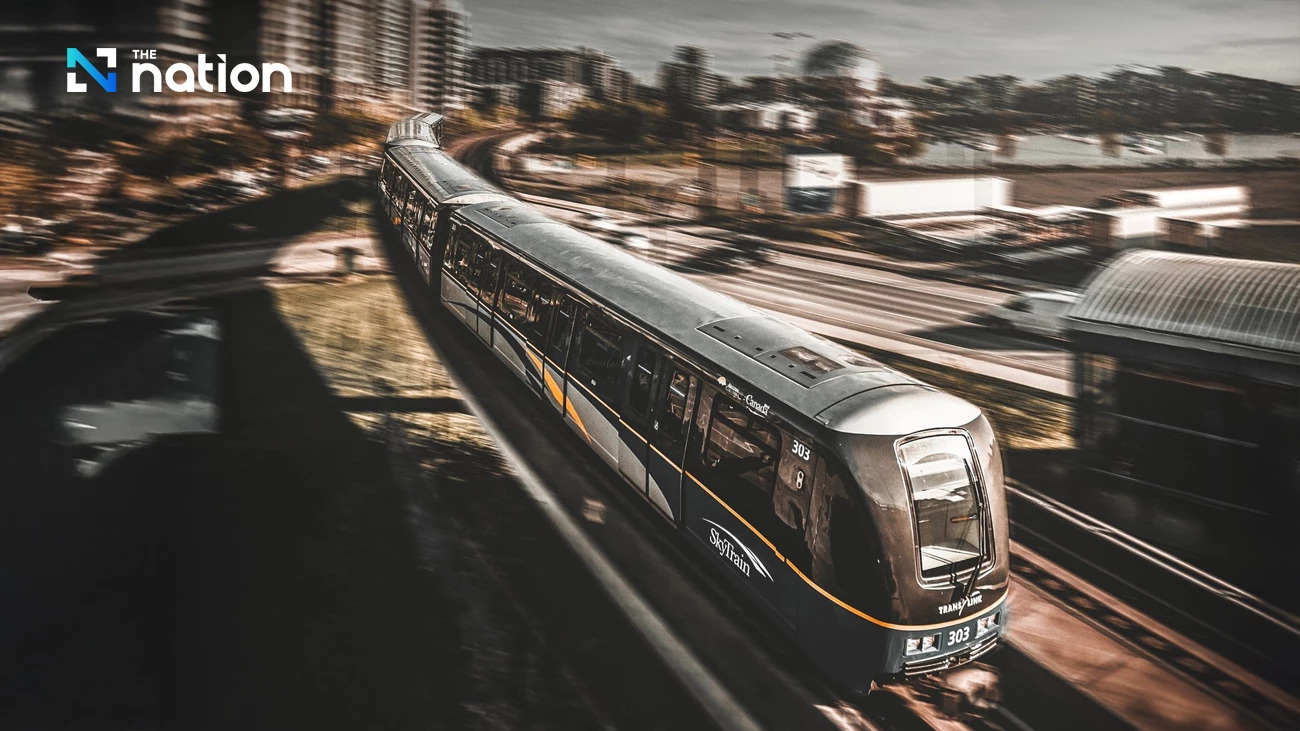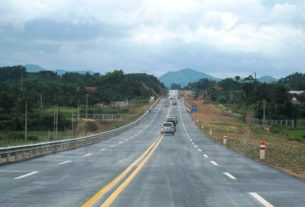 Thailand’s High-speed Three-airports rail contract fix in doubt as Transport Minister opposes pay-as-you-build
Thailand’s High-speed Three-airports rail contract fix in doubt as Transport Minister opposes pay-as-you-build
Transport Minister Phiphat Ratchakitprakarn has rejected a proposed amendment to the contract for the high-speed rail project linking Don Mueang, Suvarnabhumi and U-Tapao airports. The amendment sought to change the state’s co-investment payment method to a “pay-as-you-build” scheme, which Phiphat said contradicted the original contract terms.
The high-speed rail project connecting Don Mueang, Suvarnabhumi and U-Tapao airports, signed under a joint investment contract between the State Railway of Thailand (SRT) and Asia Era One Co, a CP Group-led consortium, on October 24, 2019, has faced repeated delays despite initial government support. The consortium won the bid with the lowest state co-investment request of 117.2 billion baht.
In October 2021, the cabinet under former Prime Minister Prayut Chan-o-cha approved compensation measures after passenger numbers on the Airport Rail Link plunged due to Covid-19. Successive administrations, including those of Srettha Thavisin and Paetongtarn Shinawatra, continued negotiations on amending the contract but failed to finalise an agreement.
Deputy Prime Minister and Transport Minister Phiphat Ratchakitprakarn said on Wednesday (October 1) that the current government has just four months left in office, plus another four months in a caretaker period, to address unresolved joint-investment projects, particularly the three-airport high-speed rail, now more than six years behind schedule.
He noted that private sector proposals to shift the payment model from a lump-sum state contribution to an instalment-based “pay-as-you-build” arrangement were inconsistent with the original contract. “I will not endorse anything that breaches the law,” Phiphat stressed.
The transport minister said tripartite talks involving Asia Era One, SRT and the Eastern Economic Corridor Office (EECO) would be convened soon to seek solutions. Should the project stall, he added, existing infrastructure, such as the double-track railway serving Laem Chabang, could be extended to U-Tapao, with additional trains deployed to maintain services.
“This is not about giving the concessionaire an option to withdraw, but about returning to the original terms of the contract. Cancelling it would be unmanageable if the private partner decided to sue,” he said.
Phiphat admitted that it would be difficult to launch the project within the government’s remaining four months, but pledged to use the time to push for a clear resolution.
A source from the EECO revealed that, although the three-airport high-speed rail project has been delayed for over six years, progress is now close to being resolved as tripartite talks between EECO, SRT, and the concessionaire have continued throughout. The source added that since the Cabinet had already approved the principle of contract amendments, the process did not violate the law.
If the project cannot move forward, all parties agree that a new solution must be found. However, in the event of termination, the contract stipulates that the party cancelling must be held responsible for any resulting damages.
The EECO confirmed that the amendment does not contravene the law. Negotiations with the private partner have shifted the payment model from the original scheme—where the private sector had to complete construction before receiving state support—to a “pay-as-you-build” arrangement. Under this plan, the state disburses funds in instalments tied to progress verified by SRT, with ownership of the assets transferred to the state immediately upon each payment.
“The revised joint-investment contract does not breach any legal provisions, as it has already been vetted by the Office of the Attorney-General. The ‘pay-as-you-build’ scheme does not favour the private sector either, since it requires the concessionaire to provide additional guarantees to prevent contract abandonment,” the source said.
The amended draft has already passed the Attorney-General’s review and is now with SRT for consideration. It will be up to SRT to decide whether to forward it to Cabinet. However, if the Transport Minister maintains his stance against the pay-as-you-build model, the project’s future will depend on the government’s final policy decision.
Attorney-General endorses CP contract amendment with minor recommendations
According to a report from the SRT, the Office of the Attorney-General (OAG) has reviewed the draft amendment to the high-speed rail contract with Asia Era One and found no legal obstacles. The OAG agreed with more than 95% of the draft terms, leaving only around 5% where it suggested additional changes that could further benefit the state.
One issue concerns the payment of 10.67 billion baht in concession fees for the Airport Rail Link (ARL). Under the revised contract, the private partner would divide the payment into seven equal annual instalments, with the first due upon signing. The OAG recommended that the instalments be accelerated to strengthen state benefits.
Another key issue is the change in the state’s co-investment payment method to a “pay-as-you-build” scheme, in which the government would disburse 125.93 billion baht in civil works support according to construction milestones verified by SRT. While endorsing this model, the OAG insisted that the private partner must place additional guarantees earlier to protect against potential abandonment of the project.
The current draft allows the concessionaire up to 270 days after signing to provide the guarantees, or upon seeking the first disbursement. The OAG recommended negotiating with the private partner to bring forward the guaranteed placement, ideally at the time of contract signing.
‘Pay-as-you-build’ will not disadvantage the state, SRT insists
The SRT has stressed that the revised payment method under the amended high-speed rail contract will not disadvantage the state. The shift to a “pay-as-you-build” system ensures that once the state pays for civil works, ownership of the infrastructure is transferred immediately to the government.
Two key elements form the substance of the contract amendment:
- State co-investment payments – The SRT board insisted that the government must not lose out. By adopting the pay-as-you-build model, the state will retain ownership of civil works upon payment.
- Additional guarantees from the concessionaire, Asia Era One Co, will be required to provide bank guarantees and collateral worth around 160 billion baht to ensure project completion within five years.
These guarantees include:
Contract guarantee of 4.5 billion baht for the full 50-year term.
Shareholder guarantee of 149.65 billion baht for the full 50-year term.
Additional guarantees totalling about 160 billion baht, to be placed with SRT within 270 days of signing the amended contract. These cover:
- Civil works guarantee: 125.93 billion baht
- Systems guarantee: 14.81 billion baht
- Operations quality guarantee: 748 million baht
- ARL concession fee guarantee: 10.67 billion baht
Under the amended terms, the concessionaire must also pay the first instalment of 1.5 billion baht for the Airport Rail Link (ARL) concession fee immediately upon signing, with the remaining sum spread over seven instalments.
The new guarantees do not have to be placed on the date of signing, but must be submitted within 270 days or before requesting the first government disbursement. Payments under the pay-as-you-build scheme will be made in five tranches of around 25 billion baht each, tied to construction milestones. Upon delivery of each tranche of civil works, the corresponding bank guarantee will be returned.
Source: https://www.nationthailand.com/blogs/news/policy/40056230



